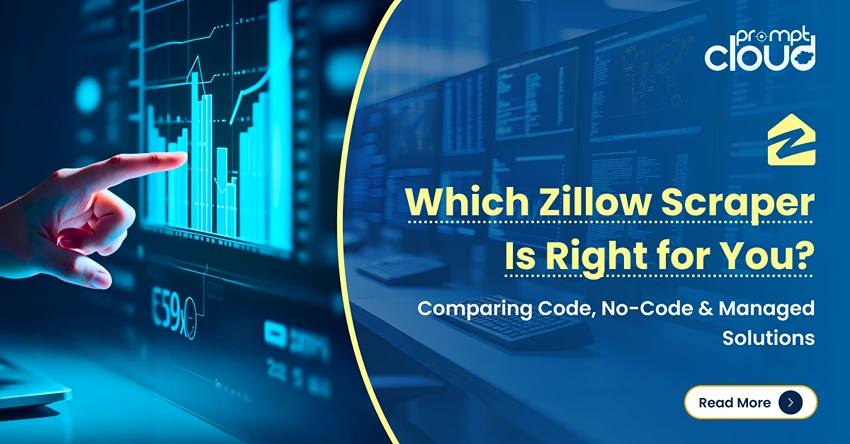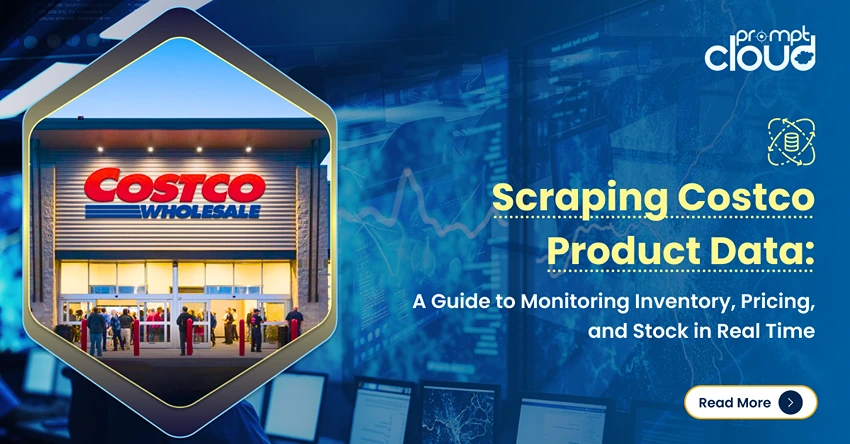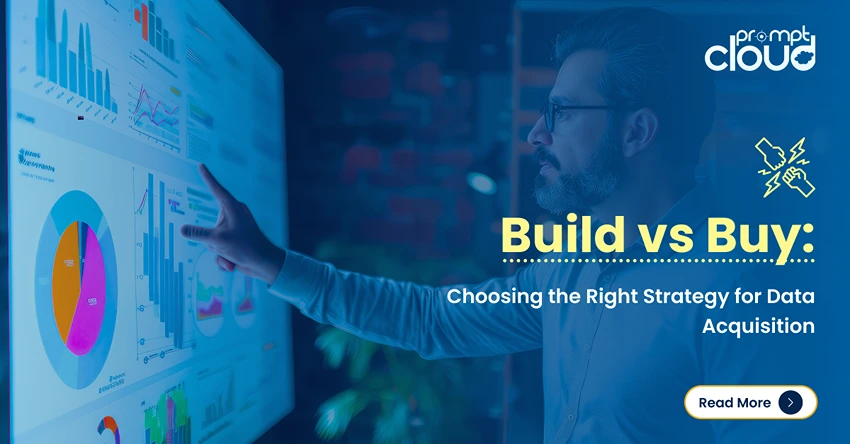
Web scraping automates the collection of data from various websites. This method involves using bots or specialized tools to visit web pages, extract relevant information, and organize it into a usable format such as databases or spreadsheets. The practice is widely adopted due to its efficiency in gathering vast amounts of data quickly and accurately.
Why does this matter for your business? Imagine being able to track competitor pricing dynamically, gauge customer sentiment directly from online forums, or spot emerging market trends as they unfold. Web scraping equips you with the data to anticipate market movements, tailor your offerings, and engage your customers more effectively.
And the impact is most profound in sectors where timeliness and precision are crucial. Consider the world of e-commerce, where pricing the right product at the right time can dramatically increase sales. Or the financial sector, where up-to-the-second data can influence major investment decisions. In these industries, among others like healthcare and real estate, the ability to swiftly adapt and respond based on reliable data isn’t just advantageous, it’s essential.
By leveraging web scraping, you can ensure your strategies are informed by the most current and comprehensive data available, placing you a step ahead in a competitive landscape. Let’s discuss in detail about some web scraping use cases.

E-commerce and Retail: Harnessing Market Trends and Consumer Behavior
In the realm of e-commerce and retail, staying ahead means staying informed. Web scraping plays a crucial role by enabling businesses to continuously monitor competitor pricing, track consumer reviews, and analyze market trends. This constant stream of data provides a clear view of the market landscape and consumer preferences, which is vital for maintaining competitive edge. This is one of the top web scraping use cases.

Source: scrapeit.io
Competitor Price Monitoring
One of the primary uses of web scraping in e-commerce is for monitoring competitors’ pricing strategies. By automating the collection of pricing data from multiple competitor websites, businesses can adjust their own pricing in real-time to stay competitive. For example, an online retailer might use scraped data to offer a price match guarantee, ensuring they always offer the best deal available, which can significantly boost customer loyalty and sales.
Consumer Reviews Scraping
Understanding customer sentiment is another area where web scraping shines. By aggregating consumer reviews and feedback from various online platforms, e-commerce businesses can gain insights into customer satisfaction and product performance. This information can drive improvements in product quality, address service issues, and even influence new product development.
Market Trends Analysis
Web scraping also aids in the detection of emerging market trends by analyzing data from a wide range of sources, including social media, blogs, and news sites. This broad perspective can help retailers spot new consumer behaviors or preferences early on.
Inventory Management and Targeted Promotions
The real-time data obtained through web scraping can lead to more efficient inventory management. By understanding current market demands and predicting future trends, businesses can optimize their stock levels, reducing both overstock and stockouts. Additionally, targeted promotions become more effective when they are based on the latest data. For example, scraping tools can help identify which products are trending upward in popularity, allowing retailers to create promotions that capitalize on these trends, driving both traffic and sales.
Travel and Hospitality: Gaining Competitive Edge with Real-time Pricing
In the travel and hospitality sector, dynamic pricing is a game-changer. It allows businesses to adjust prices based on various factors such as demand, competitor pricing, time of booking, and market conditions. Web scraping is instrumental in enabling this strategy by providing a continuous flow of data from competitors’ websites, booking platforms, and other relevant sources. This is another top web scraping use cases.
Dynamic Pricing in Travel
Dynamic pricing is critical in travel because it maximizes revenue by adjusting prices in real-time. For instance, airline tickets and hotel rates can change multiple times a day depending on incoming data regarding booking patterns and competitor pricing. This approach not only helps in optimizing occupancy rates and ticket sales but also ensures prices remain competitive without sacrificing profit margins.
Web Scraping for Competitive Pricing
Web scraping automates the collection of pricing data from multiple sources, including competitor websites, travel aggregators, and online travel agencies (OTAs). This provides travel businesses with a comprehensive view of the market landscape. For example, a hotel chain might use scraped data to adjust their room rates in response to changes in competitor pricing or fluctuations in demand due to local events or seasonal trends.
Enhancing Service Offerings Through Customer Insights
Beyond pricing, web scraping also gathers insights into customer preferences and behaviors by analyzing reviews, social media mentions, and booking patterns. This data is invaluable for tailoring services to meet customer expectations better. For example, if data shows a growing trend in families booking longer stays, a hotel might respond by offering family-friendly packages or tailored experiences, such as kid’s clubs or family-oriented excursions.
Real Estate: Enhancing Market Analysis and Investment Decisions
In the real estate sector, informed decision-making is paramount, whether it’s for investment purposes, market analysis, or property valuation. Web scraping greatly enhances these processes by enabling the aggregation of vast amounts of property-related data from various online sources such as real estate listings, public records, and market trends reports.

Source: eminenture
Gathering Property Data
Web scraping aids real estate professionals by collecting extensive data on property listings, including prices, location specifics, features, and historical sale prices. This data can be analyzed to identify pricing trends, demand fluctuations, and other market dynamics. For example, developers and investors can use scraped data to decide where to build new properties based on the popularity of certain locations or types of homes. Property managers can adjust rental prices based on real-time data about what similar properties are charging. Gathering data from real estate websites is another web scraping use cases popular these days.
Informing Investment Decisions and Market Valuations
By providing a detailed and continuously updated dataset, web scraping allows real estate investors and firms to make well-informed decisions. It enables them to perform comparative market analysis effortlessly, ensuring that their investment or selling decisions are backed by the latest market data. For instance, by analyzing current data on how long properties stay on the market and their final sale prices, investors can better understand market conditions and set competitive prices for their listings.
Research and Analytics: Market Intelligence and Automation
Research and analytics play a fundamental role across many industries, especially when informed decision-making is crucial for success. Here’s how web scraping significantly enhances research and analytics capabilities:
Enhanced Market Research
Web scraping automates the collection of vast amounts of data from diverse sources such as market reports, news articles, social media platforms, and competitor websites. This data provides a rich substrate for conducting comprehensive market research. By analyzing this information, businesses can uncover market trends, consumer preferences, and competitive insights, which can be instrumental in shaping product development, marketing strategies, and business expansions.
Real-time Data for Dynamic Analysis
In today’s fast-paced markets, having access to real-time data can provide a competitive edge. Web scraping facilitates this by continuously updating data repositories with the latest information. Analysts can leverage this up-to-the-minute data to make dynamic analyses that reflect current market conditions, allowing businesses to respond swiftly and effectively to emerging opportunities or threats.
Cost-Effective Data Collection
Traditional methods of data collection, such as surveys and manual research, can be time-consuming and costly. Web scraping offers a more efficient alternative, significantly reducing the time and expense associated with data acquisition. This efficiency enables even smaller firms or those with limited resources to perform sophisticated research and analytics that were previously only feasible for larger organizations.
Enhanced Predictive Analytics
By feeding historical and real-time data collected via web scraping into predictive models, businesses can forecast future trends with greater accuracy. This predictive capability is crucial for industries like finance, where anticipating market movements can yield significant gains, or in retail, where understanding future consumer behavior patterns can optimize inventory management.
Customization and Precision
Web scraping tools can be tailored to collect specific types of data relevant to a particular industry or research focus. This customization ensures that the data gathered is not only vast but also precise and directly applicable to the specific analytical needs of the business. This level of specificity supports more accurate analyses and, consequently, more effectively informed business strategies.
Automation and Efficiency
The automation aspect of web scraping means that data can be collected 24/7 without the need for constant human supervision. This not only speeds up the research process but also minimizes the risk of human error. The efficiency gained through automation allows businesses to allocate their human resources to more complex tasks, such as data interpretation and strategy implementation, which require human insight.
Finance and Investment: Driving Strategies with Real-Time Data
In the finance and investment sector, real-time data is a cornerstone for strategic decision-making, and web scraping is a key tool that helps institutions stay agile and informed. Here’s how financial institutions utilize web scraping, focusing on areas beyond just stock market data:
Real Estate and Asset Valuation
When assessing the value of real estate and other large assets, financial institutions leverage web scraping to collect vast amounts of data from real estate sites, auction results, and historical transaction records. Analyzing this data helps in determining accurate asset valuations and investment potentials, which are essential for mortgage lending and investment strategies.
Competitive Analysis
To stay competitive, financial institutions must continuously monitor their market position relative to others. Web scraping facilitates this by gathering data on competitors’ product offerings, service terms, and customer reviews. This information aids institutions in benchmarking their services against the market, identifying competitive advantages, and areas for improvement.
Customer Experience and Personalization
Understanding customer needs and preferences is vital to improving service and retaining clients. Web scraping helps gather information on customer behaviors and preferences from social media, forums, and other digital interactions. This data is used to tailor financial products and services to better meet the specific needs of customers, enhancing personalization and customer satisfaction.
Market Sentiment Analysis
Beyond direct financial data, understanding market sentiment is important for predicting economic trends. Web scraping collects information from news outlets, financial blogs, and discussion forums, providing a broader view of public sentiment towards economic conditions, policy changes, or particular sectors. Financial institutions analyze this data to gauge market mood and anticipate shifts in consumer confidence and investment behaviors.
Jobs Data Scraping: For Job Boards and Aggregators
Jobs data scraping is a process where data about job listings, salaries, qualifications, and company information is systematically extracted from multiple online sources like job boards, company career pages, and professional networking sites. This method of data collection can be extremely beneficial for a variety of stakeholders, including job seekers, recruiters, companies, and market analysts. Here’s a detailed breakdown of how jobs data scraping is utilized:
Recruitment and Hiring
Recruiters and HR departments use web scraping to gather information on available positions, required skills, and offered salaries across various industries and regions. This helps them understand the current job market, design better job descriptions, and set competitive salary ranges to attract top talent.
Market Analysis and Benchmarking
Companies and analysts scrape job data to assess industry trends, such as which skills are in demand, which job roles are growing, and salary benchmarks. This information can guide businesses in strategic planning, workforce development, and in setting competitive compensation packages to retain high-performing employees.
Job Search Platforms and Aggregators
Websites like Indeed, Glassdoor, and LinkedIn aggregate job listings from various sources to provide a comprehensive search platform for job seekers. Web scraping automates the collection of this data, ensuring that job listings are up-to-date and that the platform covers a wide array of job opportunities from across the web.
In Conclusion
Web scraping has emerged as an indispensable tool across multiple industries, transforming the way businesses gather, analyze, and leverage data to drive strategic decisions. By automating the collection of vast amounts of information from the web, this technology offers businesses a significant edge in various aspects such as competitive pricing, market research, customer insights, and regulatory compliance.
From e-commerce and retail maximizing sales through dynamic pricing and inventory management, to the travel and hospitality industries enhancing customer service and operational strategies, web scraping proves essential. Additionally, the tool’s impact on jobs data scraping highlights its utility in human resources and job market analytics, providing deep insights into employment trends and candidate sourcing.
The effectiveness of web scraping lies in its ability to provide real-time, accurate, and relevant data, enabling businesses not just to keep up but to stay ahead in an increasingly competitive and data-driven world. As industries continue to evolve and data becomes ever more crucial, web scraping will play a pivotal role in shaping future business landscapes, driving innovations, and enhancing customer experiences.



















